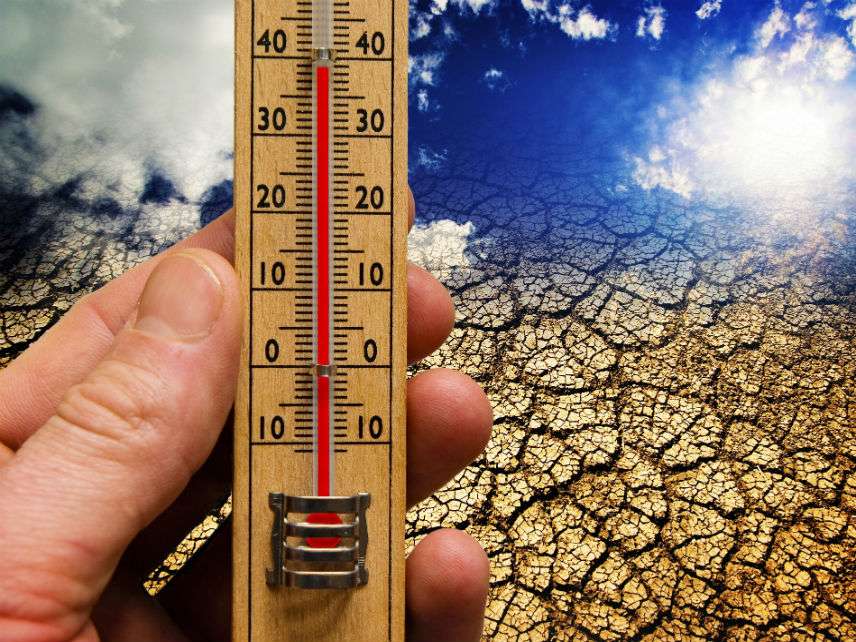Trump Did Not 'Suppress' the New National Climate Science Special Report
It says "human activities, especially emissions of greenhouse gases, are the dominant cause of the observed warming."

Despite the fears of some climate activists, the Trump administration did not suppress any of the conclusions in the National Climate Assessment program's new Climate Science Special Report. The new report essentially bolsters the climate change consensus that the accumulation of greenhouse gases in the atmosphere derived chiefly from burning fossil fuels is warming the planet at a relatively rapid rate.
The new report is being issued just as the latest United Nations climate change conference gets ready to start up next week.
So what does the report find?
(1) Global annually averaged surface air temperature has increased by about 1.8°F (1.0°C) over the last 115 years (1901–2016).
(2) Based on extensive evidence…it is extremely likely that human activities, especially emissions of greenhouse gases, are the dominant cause of the observed warming since the mid-20th century [emphasis in report]. For the warming over the last century, there is no convincing alternative explanation supported by the extent of the observational evidence.
(3) Global average sea level has risen by about 7–8 inches since 1900, with almost half (about 3 inches) of that rise occurring since 1993. Human-caused climate change has made a substantial contribution to this rise since 1900, contributing to a rate of rise that is greater than during any preceding century in at least 2,800 years.
(4) Relative to the year 2000, global mean sea level is very likely to rise by 0.3–0.6 feet (9–18 cm) by 2030, 0.5–1.2 feet (15–38 cm) by 2050, and 1.0–4.3 feet (30–130 cm) by 2100.
(4) Annual average temperature over the contiguous United States has increased by 1.8°F (1.0°C) for the period 1901–2016; over the next few decades (2021–2050), annual average temperatures are expected to rise by about 2.5°F for the United States, relative to the recent past (average from 1976–2005)….
(5) The frequency of cold waves has decreased since the early 1900s, and the frequency of heat waves has increased since the mid-1960s (the Dust Bowl era of the 1930s remains the peak period for extreme heat in the United States).
Over at The Wall Street Journal, physicist Steven Koonin, who served as undersecretary of energy for science in the Obama years, describes the new report as "deceptive." He acknowledges that "much is right in the report" but thinks its tone is misleading in some important areas. Specifically, he notes that the recent rate of sea level rise is just as fast as during various periods in the 20th century, and that heat waves are no more frequent than they were in 1900.
Koonin suggests:
These deficiencies in the new climate report are typical of many others that set the report's tone. Consider the different perception that results from "sea level is rising no more rapidly than it did in 1940" instead of "sea level rise has accelerated in recent decades," or from "heat waves are no more common now than they were in 1900" versus "heat waves have become more frequent since 1960." Both statements in each pair are true, but each alone fails to tell the full story.
Koonin wants to remedy what he thinks are deficiencies in the way climate science is assessed by "convening a 'Red/Blue' adversarial review to stress-test the entire report."
Given the thorough politicization of climate science, I doubt that the results of such a review would satisfy either alarmists or deniers.*
Watch this space next week for a more detailed analysis of the report.
*The epithets that global warming partisans use to denounce their opponents.


Show Comments (69)